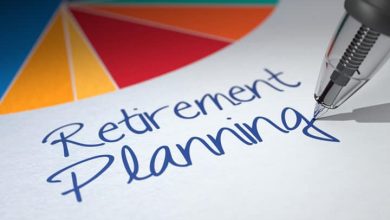Tips For Choosing The Best Bank Account For You

Choosing a bank account is challenging. You don’t want to opt for the first bank you see just because it has good rates and savings perks, because, in the end, it might not be the best fit for you. Here are some tips for choosing the right bank for your needs.
Top 7 Tips for Choosing a Bank
1. Make a list of the features you want (and don’t want) in a bank account. Then compare each of these features in detail, making sure you get the most out of your money. Features like online bill pay and text alerts can help keep track of your spending habits and make managing your finances easier — but only if they’re actually useful to you!
2. What type of account do you want to open? Banks offer several options, such as:
- Checking accounts.
- Savings accounts.
- Credit cards
- Investments
- Mortgage funding
3. Choose how much money you will keep in the account at any given time and if there is a minimum balance requirement. Banks typically charge fees when you don’t keep enough money in your account. To avoid this, choose a bank with no minimum balance requirement.
4. Decide whether you want a bank with physical locations or an online bank. The biggest advantage of online banking is convenience. Manage your money from any device with an internet connection, set up automatic bill payments, use mobile check deposit, and perform other tasks with a few clicks.
Online banking was a novel concept twenty years ago, and many customers believed it would be beneficial. But because of their growing popularity, traditional banks are now directly rivaling them.
5. Choose a bank with no ATM fees and no overdraft fees. Banks charge an overdraft fee anytime your account doesn’t have enough money to process a transaction. The average is roughly around $35 per transaction, which can really add up over the long term.
6. Look for one with the lowest interest rates. Consider the current interest rates when opening a savings, certificate of deposit, or money market account. Interest rates do not apply to checking accounts. Opt for the one that offers the biggest return on your investment.
7. Make sure the type of account you choose is insured by the Federal Deposit Insurance Corporation (FDIC). The FDIC protects the money deposited in insured banks in the U.S. from loss of funds should the bank fail.
The best bank for you is going to be one that gives you better access to your money, helps you put more money in your pocket (by charging fewer fees), and has great customer service.
How long does a car accident lawsuit take?
The duration of a car accident lawsuit can vary widely depending on several factors, making it challenging to predict an exact timeline. Typically, the length of the case depends on the complexity of the situation, the severity of injuries sustained, and the amount of evidence needed to reach a verdict.
In straightforward cases where fault and damages are evident, the litigation process can take as little as a few months. However, more complicated cases can take several years to conclude, especially when it comes to determining liability or reaching a settlement agreement. In addition, the type of court and jurisdiction where the lawsuit is filed can also affect how long it takes to resolve the case.
Furthermore, insurance companies may attempt to delay or dispute the claim, prolonging the legal process. This can be particularly frustrating for plaintiffs who are seeking compensation for medical bills, lost wages, and other expenses related to the accident.
It’s important to understand that each case is unique, and the timeline can vary based on the circumstances. It’s best to consult with an experienced attorney who can provide a better idea of how long the lawsuit could take and what to expect throughout the legal process.
Resources:
https://current.com/banking-account-with-no-overdraft-fees/
https://www.bankrate.com/banking/how-to-choose-a-bank/
https://www.businessinsider.com/personal-finance/how-to-choose-a-bank




